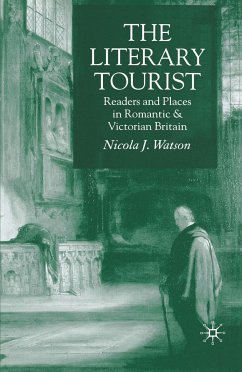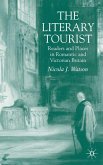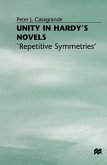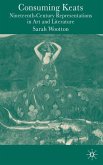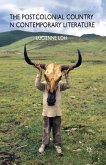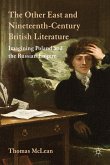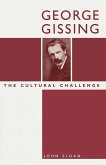This original, witty, illustrated study offers the first analytical history of the rise and development of literary tourism in nineteenth-century Britain, associated with authors from Shakespeare, Gray, Keats, Burns and Scott, the Brontë sisters, and Thomas Hardy. Invaluable for the student of travel and literature of the nineteenth century.
'absorbing, well-researched and informative' - The Yorkshire Post
'pioneering work...an exceptionally accessible and entertaining work of scholarship' - Samantha Matthews, TLS
'Watson has produced a book likely to interest readers in both the literary and tourist domains, and a study worth putting on the shelves of academic and public libraries.' - Stuart Hannabuss, Library Review
'She [Watson] writes from an agreeably personal standpoint, having undertaken a good deal of such touring on her own account.' - Michael Irwin, The Thomas Hardy Journal
'Combining exemplary historical scholarship with considerable critical and theoretical sophistication, she [Watson] offers sensitive readings on the one hand of the texts and literary careers that have brought about significant forms of literary tourism, and on the other, of the literary-touristic experience itself...this is an impressive study that will prove useful not just to specialists in tourism and travel writing, but to all scholars of eighteenth- and nineteenth-century literature and culture.' Carl Thompson, British Association for Romantic Studies Bulletin& Review
'pioneering work...an exceptionally accessible and entertaining work of scholarship' - Samantha Matthews, TLS
'Watson has produced a book likely to interest readers in both the literary and tourist domains, and a study worth putting on the shelves of academic and public libraries.' - Stuart Hannabuss, Library Review
'She [Watson] writes from an agreeably personal standpoint, having undertaken a good deal of such touring on her own account.' - Michael Irwin, The Thomas Hardy Journal
'Combining exemplary historical scholarship with considerable critical and theoretical sophistication, she [Watson] offers sensitive readings on the one hand of the texts and literary careers that have brought about significant forms of literary tourism, and on the other, of the literary-touristic experience itself...this is an impressive study that will prove useful not just to specialists in tourism and travel writing, but to all scholars of eighteenth- and nineteenth-century literature and culture.' Carl Thompson, British Association for Romantic Studies Bulletin& Review

